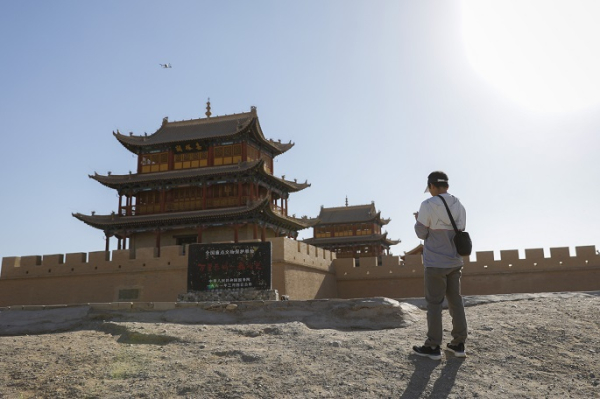
New research has revealed that large portions of the Great Wall of China, a UNESCO World Heritage Site, are protected by a biological community found on the surface of the ancient ramparts, reported Xinhua.
According to a study published on Saturday in the journal Science Advances, the biological soil crusts or biocrusts, consisting of photosynthetic bacteria, mosses and lichens, aid in increasing the ancient structures' stability and fend off erosion caused by rain and wind.
The Great Wall consists of many interconnected walls, some dating back 2,000 years. The existing sections have a total length of over 21,000 kilometers. Its most visible portions were built during the Ming Dynasty (1368-1644).
Many sections of the wall, particularly those in more arid regions, were built with rammed earth, such as soil and gravel compacted into dense earthen formulations.
Some heritage conservationists have conjectured that the natural vegetation might accelerate the weathering process. However, the findings of the new study provided a contrary conclusion.
Researchers from the Chinese Academy of Sciences and China Agricultural University examined the structural stability and erodibility of samples taken from eight sections of the Ming-era Great Wall made from rammed earth.
They found that biocrusts covered 67 percent of the studied sections. Also, the cyanobacteria, a group of bacteria containing a blue photosynthetic pigment, dominated biocrusts in arid regions while Pottiaceae mosses thrived in wetter, semi-arid climates.
Overall, the biocrusts, especially those dominated by moss, enhanced the wall's mechanical strength and soil stability by 37 percent to 178 percent compared with bare rammed earth, said Xiao Bo, corresponding author of the study.
They also work to significantly buffer the effects of wind, rain and temperature fluctuations, according to the study. "Biocrusts serve as stabilizers, sacrificial layers and drainage roofs, combining the protective functions of several conventional measures into one eco-friendly approach," Xiao said.
Source: www.dailyfinland.fi
